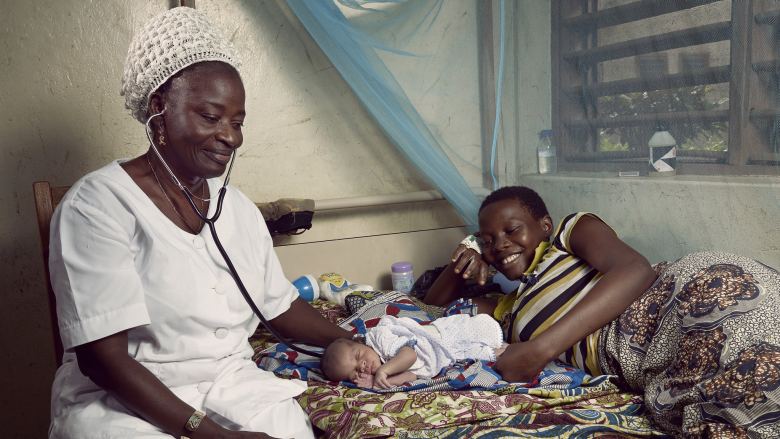In Benin, poverty is persistent: Nearly half the population lives on less than $1.90 per day. Development progress in the country is uneven: In some rural areas such as Aplahoue-Diakotomey-Dogbo, there are as few as two health workers for every 10,000 people. In Kandi and Atacora, there is just one teacher for every 116 students. Further, a weak business environment deters investment and slows growth.
The World Bank Group supports the government’s development plan, which recognizes the need for investments in human capital, infrastructure, and the power sector. But for the government, executing this plan requires stepping up public borrowing from domestic sources, sometimes at expensive terms. Benin is grappling with a challenge facing many developing countries - balancing the cost of improvements its people need with keeping debt levels at sustainable levels.
Approach
The World Bank Group was able to provide The Government of Benin with an innovative solution to the complex challenges it was facing. In line with the Maximizing Finance for Development (MFD) approach, this operation leveraged $60 million in available International Development Association (IDA) funds to generate access to much larger amounts of commercial funding.
This was accomplished by using a policy-based guarantee (PBG), in which The World Bank Group covered private lenders against the risk of debt default by the sovereign government. This backing by the World Bank Group enabled Benin to access international financing at convenient terms and helped the country to successfully reprofile its debt.
This is the first time in World Bank Group history that a policy-based guarantee was leveraged to back a commercial loan in Africa.
Here is how it worked:
- With $60 million in available IDA financing, Benin split the funds between a $15 million IDA credit, which was used for general budget support, and $45 million for the policy-based guarantee.
- The remaining $45 million was used to provide a guarantee of $180 million. This was possible because IDA policy allows only 25 percent of the value of guarantee goes against the country’s IDA allocation.
- To attract commercial lenders and achieve competitive terms, the IDA guarantee offered a coverage of 40 percent of the amount raised. Thus, Benin could access up to $450 million in commercial lending.
- The first PBG-backed loan of about $300 million was signed in September 2018.
- The second PBG-backed loan with a different international bank for $150 million was signed in December 2018.

